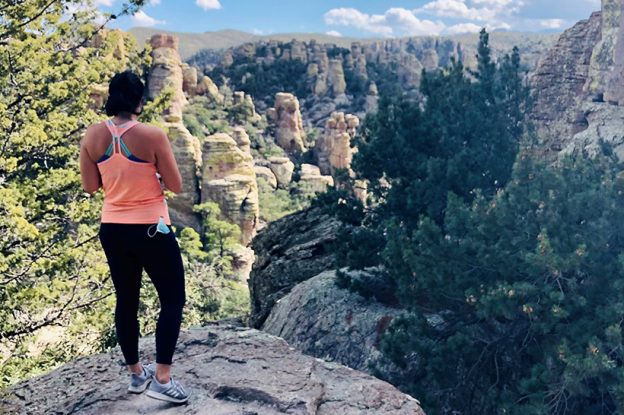
5 questions for … Dr. Ana Florea
Ana Florea, PhD, MPH, is an epidemiologist and post-doctoral research fellow with the Department of Research & Evaluation at Kaiser Permanente Southern California. She has special interests in vaccine safety and effectiveness, infectious diseases, cancer, and chronic kidney diseases. Currently, she is involved in projects studying shingles and Tdap vaccines. She works on projects involving antibiotic resistance and hepatitis B chronic infection.
Before joining Kaiser Permanente, Dr. Florea was the lead clinical research coordinator for several nephrology-related clinical trials for the University of Arizona College of Medicine. In addition, as part of her dissertation work within the College of Public Health, she designed, planned, initiated, and conducted analyses for projects related to gastric cancer, colorectal cancer, and chronic kidney disease. As a result of this work, she has published several articles in academic journals.
What initially drew you to your research?
I was initially drawn to research after joining a club while I was completing my undergraduate degree at UCLA. The club, Fellowship for International Service and Health (FISH), provided mobile medical clinics every weekend in a settlement outside of Tijuana. With the clinic, we offered screenings for the local people for high blood pressure, high cholesterol, diabetes, and other conditions. We also worked with public health graduate students and research professionals, whom I really enjoyed watching come up with research projects for this population. The projects included interventions, but more importantly, screening and prevention strategies, which I found fascinating. This led me to pursue a master’s degree in public health, and to continue to work on various research projects.
Before you joined R&E, much of your research focused on cancer and kidney disease. What was the impetus for you to start studying vaccines?
I realized early on that I am more of a generalist when it comes to research, rather than someone who focuses on just one particular area. That’s the beauty of epidemiology: At its core, it’s the same across all research areas, as the same methods can be applied to various diseases. In addition, I have always been interested in vaccines. When I came across the listing for a post-doctoral research fellow with Kaiser Permanente Southern California, I realized it would be the perfect opportunity for me to explore a new area.
What led you to do your postdoctoral work at the Department of Research & Evaluation, and what have you learned here so far?
The variety of research projects in the department definitely interested me, as well as the collaborative nature of the work here. I enjoy being a part of a team and learning about each person’s contribution to the various aspects of a project. I also like that this role can serve as a good stepping-stone between academia and industry. I would eventually like to end up in the health care industry in the private sector.
You made a virtual presentation last month at the Annual Conference on Vaccinology Research. What can you tell us about the study?
One of my colleagues, Dr. Katia Bruxvoort, graciously asked me to present the project on her behalf. I am glad she did, as the conference was very informative for me and I got see a variety of presentations on several subjects in the vaccine field. As for the study I presented, the quick way to describe it is that the team looked into whether or not herpes zoster (shingles) develops in those who received the recommended recombinant zoster vaccine in conjunction with or without another vaccine.
What aspect of your research are you most proud of and why?
The project I am most proud of is one I worked on related to gastric cancer. My research team and I looked into ethnic disparities in gastric cancer screening practices in a Medicare population and found differences across racial/ethnic groups. We also had data on place of birth, foreign vs. U.S., which I found really interesting to analyze as well. I submitted this project to the American Society of Preventive Oncology, where it got accepted for an oral presentation, and it was selected as the conference’s top ranked pre-/post-doctoral fellow-submitted abstract. As a newbie, it was very exciting, and a bit nerve-wracking, for me to present my research to a room full of subject experts, but that presentation led to some excellent discussions and networking opportunities.
Bonus question: When you are not at work, how do you enjoy spending your free time?
I picked up baking as a regular pastime in college to de-stress and have been using it to relax ever since. I try not to bake the same treat twice, as I love to try out new and challenging recipes. I typically have a piece or 2 of my creation, and then share the rest with friends and family. I also enjoy hiking, which I started doing more frequently while I lived in Arizona. Some of my favorite trails there include Picacho Peak just outside Tucson, and Devil’s Bridge in Sedona.
Travel is another passion of mine, and I like to do it as much as possible. Two of my absolute favorite excursions have been road trips: one across New England from Boston to Vermont and into Montreal, and one across Europe from Denmark to Romania. The most breathtaking, picturesque part of the European trip was driving through the Alps.





